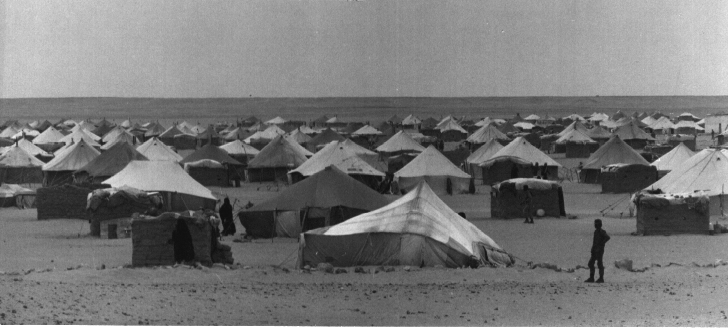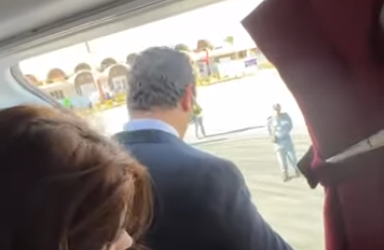The Madrid Accord, signed on November 14, 1975, represents a dark chapter in the history of Western Sahara. This secret and illegal agreement, orchestrated by Spain, Morocco, and Mauritania, divided the territory of Western Sahara without consulting its indigenous Sahrawi population. Backed by major powers, including the United States, the accord disregarded the Sahrawi people’s right to self-determination, sparking decades of conflict and suffering.
The Origins of the Sahrawi Liberation Struggle: From Colonial Oppression to Armed Resistance
The Sahrawi people’s fight for freedom began long before the Madrid Accord. In 1973, mass demonstrations swept through the territory, demanding independence from Spanish colonial rule. These protests were fueled by a growing national consciousness and the desire to end nearly a century of oppression. That same year, the Popular Front for the Liberation of Saguia el-Hamra and Rio de Oro, known as the Polisario Front, was founded to lead the struggle for independence.
On May 20, 1973, the Polisario Front launched its first armed attack against Spanish forces, marking the beginning of an armed liberation struggle. However, as Spain prepared to withdraw, a new threat emerged. On October 31, 1975, Moroccan forces, supported by tanks and warplanes, invaded Western Sahara. Thousands of Sahrawi families were forced to flee to Algeria, where they established refugee camps to escape Moroccan airstrikes and violence.
Just days later, on November 6, 1975, over 350,000 Moroccans marched into Western Sahara in the so-called “Green March,” an act of aggression greenlit by the United States. By February 27, 1976, the Sahrawi Arab Democratic Republic (SADR) was proclaimed as the legitimate government of Western Sahara. Yet, the struggle continued as the Polisario Front waged an armed resistance against Morocco and, briefly, Mauritania.
“Unfulfilled Promises and Unyielding Resistance: The Sahrawi Struggle for Justice and Self-Determination”
A ceasefire agreement was reached in 1991, mediated by the United Nations, which promised a referendum for the Sahrawi people to determine their future. However, decades later, the referendum remains unrealized, and the Sahrawi people continue to suffer under Moroccan occupation.
In the occupied territories, the Moroccan regime has committed countless human rights abuses. Enforced disappearances, mass arrests, and violent crackdowns are common. Many Sahrawi political activists face harsh prison sentences, ranging from thirty years to life, in trials conducted by a judiciary that serves as judge, jury, and executioner. Families are torn apart by house raids, assassinations, and abductions, with many victims still missing to this day.
Despite these atrocities, the Sahrawi people’s determination to achieve their right to self-determination remains unshaken. Their struggle is a testament to their resilience and commitment to justice. The international community must act to end their suffering and uphold their right to freedom and sovereignty.
And the suffering continues… but so does the fight for justice.
#Madrid_Accord #Westernsahara #Polisario #Spain #Mauritania #Morocco




